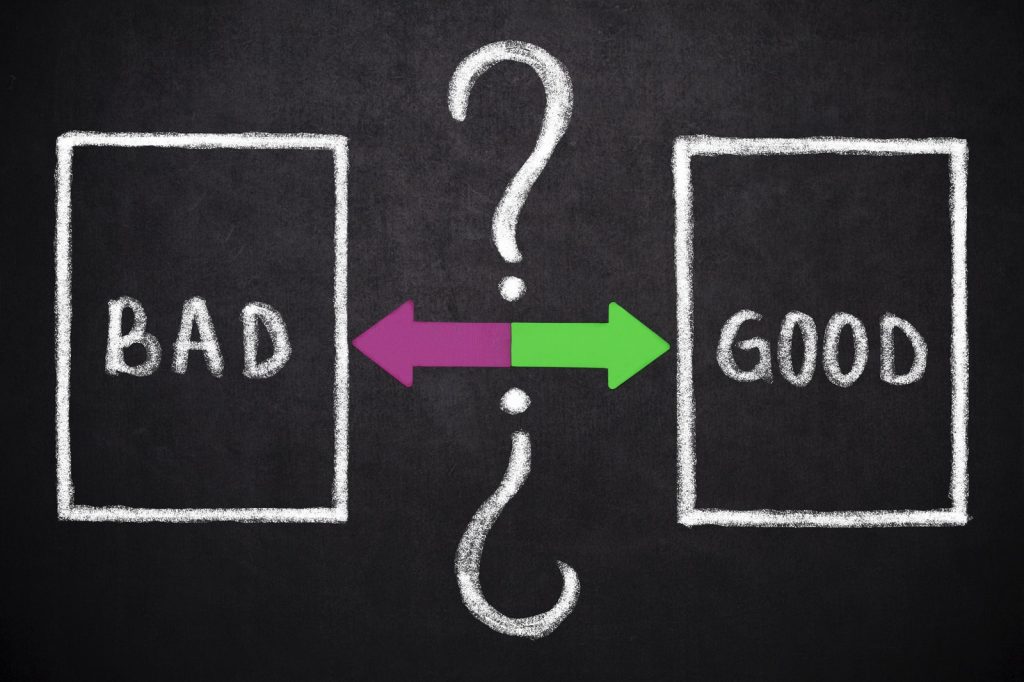When it comes to uterine fibroids, every woman’s experience is different. For example, many women may not be aware they have them. Others experience symptoms so uncomfortable that completing daily activities becomes increasingly difficult. Whether this sounds familiar, or your experience is somewhere in the middle, it’s important that you and your doctor keep a watchful eye. As fibroids grow, a condition known as fibroid degeneration can occur, causing acute pain that requires intervention.
Fibroid degeneration happens when one or several fibroids stop receiving the blood supply they need to live and instead begin to shrink. While this may sound like a good thing, many women ultimately suffer the brunt of this process.
What Are Fibroids?
Uterine fibroids affect up to 80% of all women by the time they reach 50. Depending on your situation, you may have one or several. In addition, they could all differ in size and either stay that way or grow at different rates.
Do you have any of these fibroid symptoms?
- Heavy or inconsistent menstrual bleeding
- Periods that last longer than a week
- Bloating or swelling in the lower abdomen
- Pelvic pain or pressure
- Excessive fatigue
- Difficulty urinating or need to urinate more often
- Back or leg pain
- Constipation
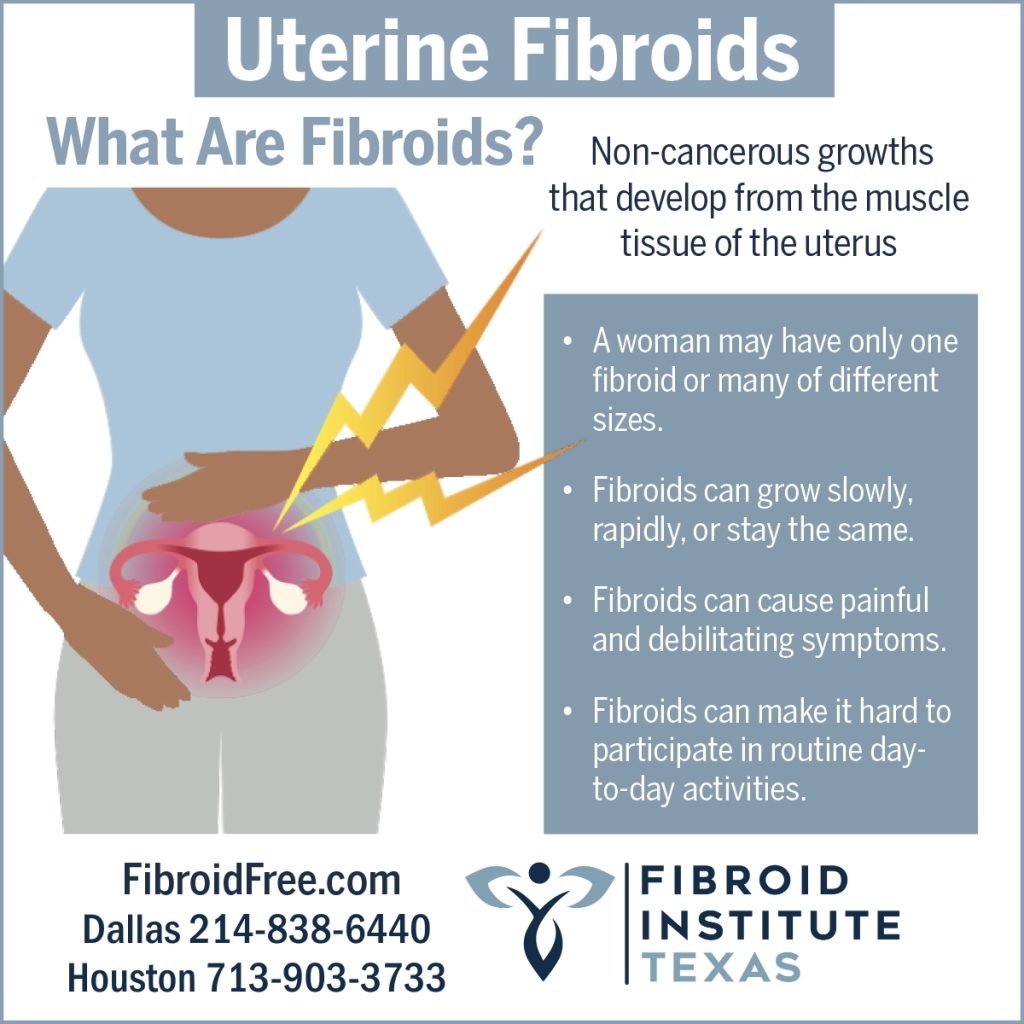
The growth factor of fibroids is of particular concern to women since uterine fibroids can get very large. According to the Office on Women’s Health, the hormones estrogen and progesterone stimulate the development of the uterine lining during each menstrual cycle in preparation for pregnancy. This causes fibroids to swell, and in many cases, vary from the size of a bean to a melon.
How Does Fibroid Degeneration Change Symptoms?
All fibroids need oxygenated blood to live, but when they become too large too fast, the tissue can actually outgrow its blood supply. This causes the fibroid to shrink down to a size that the current blood supply can feed. On paper, a shrinking fibroid sounds like a good thing. But in reality, it is likely to expand and degenerate again, starting the process over. As a result of this cycle of growth and shrinkage, many women can experience additional symptoms:
- Acute stabbing pain — This is perhaps the most common symptom of fibroid degeneration and includes localized sharp and stabbing pains in the abdomen. The stabbing pains are caused by a release of chemicals from the fibroids as the cells die and are accompanied by swelling.
- Fever — As a result of fibroid degeneration, many women experience a low-grade fever, which is defined as a body temperature between 100.4 and 102.2 degrees Fahrenheit.
- Bleeding — In rare cases, fibroid degeneration may cause hemorrhaging or bleeding. This can occur during your normal menstrual cycle or between periods and is a telltale sign of fibroids.
- Chronic pain — Lasting pelvic pain and other chronic pain that isn’t too severe but never seems to go away is also a sign of fibroid degeneration.
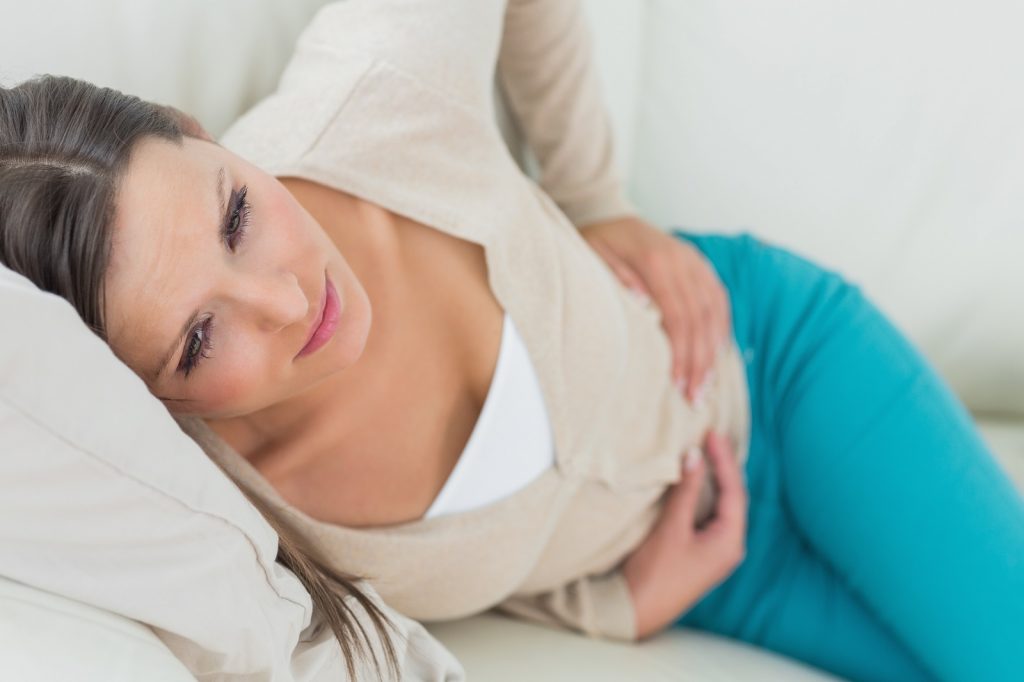
Pain from fibroid degeneration can last anywhere from a few days to a couple of weeks. Even if patients treat their pain with ibuprofen or heating pads, it is important to have professional medical assessment and treatment.
Some patients think “my symptoms seem to have gone away, so I no longer need treatment.” This can happen if your fibroid has stopped degenerating. Yes, you may feel lessened or fewer symptoms for a time. However, fibroid degeneration can inevitably return until you fully treat your fibroids. Getting to the root of the problem is the only way to solve it.
Does Location Matter with Fibroid Degeneration?
The Office on Women’s Health breaks fibroids down into four types depending on location:
- Intramural fibroids — Grow inside the muscles of the uterine wall, causing issues with uterine function. Accounting for 70% of uterine fibroids, this is the most common, affecting one in four of all women of childbearing age.
- Submucosal fibroids — Protrude underneath the uterine lining and into the uterine cavity, causing issues with uterine function. Some women notice heavy bleeding during menstruation and increased abdominal pain from this type of fibroid.
- Subserosal fibroids — Tend to grow just outside the uterine walls, impacting surrounding organs. As a result, these can put pressure on the bladder, bowels, and abdomen.
- Pedunculated fibroids — Hang by a thin thread or stalk inside or outside the uterus. These are more likely to cause pain in the abdominal area due to obstruction of the uterus and surrounding organs.
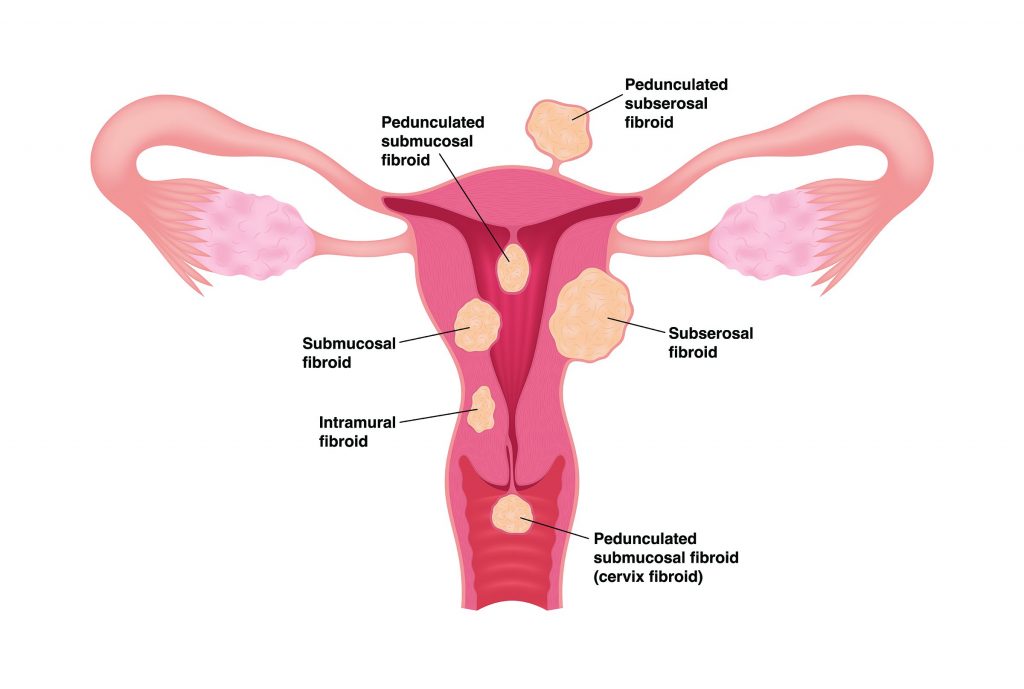
Pedunculated fibroids are of particular concern when it comes to fibroid degeneration. These fibroids hang by a thin thread or stalk inside or outside the uterus. They are likely to become twisted and, as a result, can cut blood supply to the fibroid. Pain associated with these fibroids can be even worse and last longer than a normal degeneration.
Pregnant women with fibroids need to be aware that fibroid degeneration can happen during pregnancy. This type of degeneration is known as necrobiosis. Abnormal bleeding and severe abdominal pain are two of the main symptoms. This is particularly worrisome during pregnancy. For peace of mind, pregnant women experiencing this should seek help as soon as possible.
How UFE Can Help with Fibroids and Fibroid Degeneration
There is nothing normal about fibroids or the life-interrupting symptoms they cause. Regardless of whether you’re experiencing uncomfortable symptoms of fibroid degeneration or not, it is important to seek treatment from a doctor now and keep a watchful eye at a minimum. If you begin to experience symptoms, or your existing symptoms become worse, a popular go-to treatment option is Uterine Fibroid Embolization (UFE).
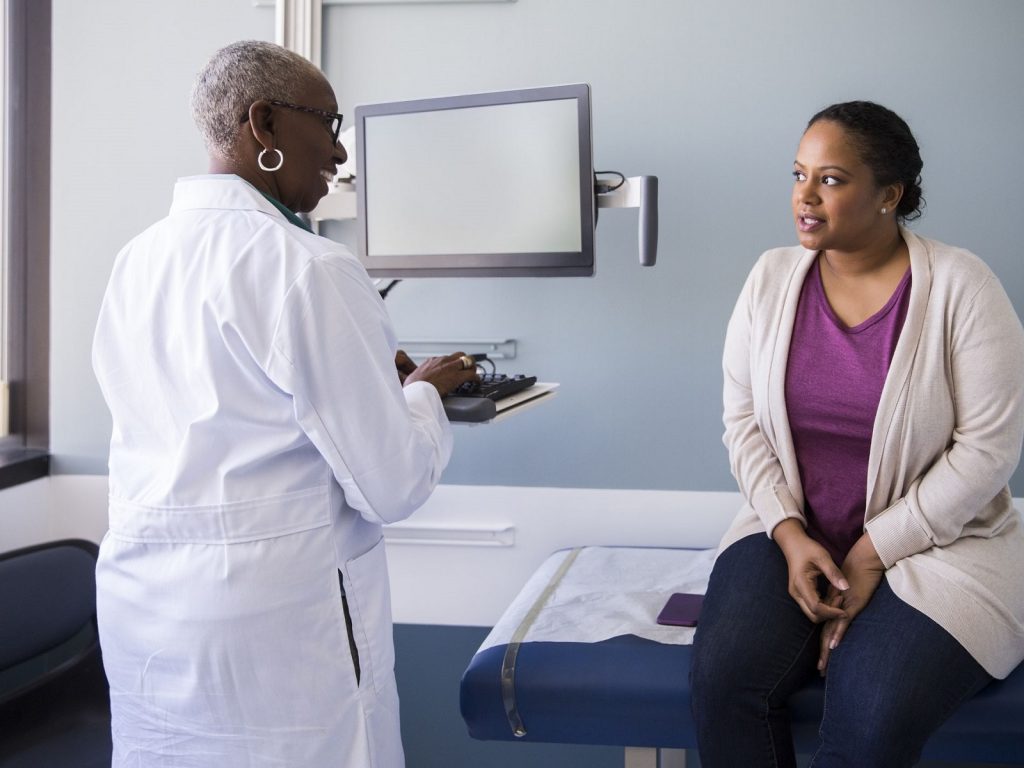
UFE is unique because it treats fibroids without having to go through a painful surgery and lengthy recovery time. The UFE procedure uses image-guided interventional radiology and tiny particles to safely block the blood supply to fibroids, causing fibroids to shrink and die, getting you back to your normal activities quickly.
Benefits of UFE Include:
- No hospital stay
- Shorter recovery period (one week in most cases)
- Procedure typically completed in under an hour
- No scarring
- Uterus is spared
- Less risk than fibroids surgery
- Treat multiple fibroids at once
- Over 90% effective in reducing symptoms
Contact Fibroid Institute to Learn More
If you discover you have fibroids, we understand it can be overwhelming. The best way to ease your concerns, get your questions answered, and find treatment options that work best for you is to have an open conversation with your doctor. The good news is fibroids are treatable and there are alternatives to fibroid surgery.
Uterine fibroid embolization (UFE) is the gold standard in non-surgical fibroid treatment. Rather than a hospital stay, UFE is a same-day outpatient procedure. In fact, at Fibroid Institute we offer UFE to patients in the comfort of our Houston and Dallas fibroid clinics, equipped with advanced medical technology.
The specialized team at Fibroid Institute, with experienced Dallas and Houston fibroid doctors, have helped thousands of women discover the joys of living fibroid free. With each UFE procedure, patients are empowered to achieve their full potential without being limited by fibroid symptoms. For many women, the UFE procedure changed their lives. At Fibroid Institute, we are dedicated to helping you become #FibroidFree.
Request a free 10-15 minute phone screening to determine if you are eligible. After the screening, if you qualify for UFE, you can schedule your onsite or telehealth consultation. Most major medical insurance providers cover the cost of UFE.
Call for an appointment with Fibroid Institute Dallas at 214-838-6440 or with Fibroid Institute Houston at 713-903-3733 or complete the form below.
Fibroid Institute Texas serves the Dallas and Houston areas including Richardson, Dallas, Sherman, Houston, Sugar Land, Katy, Webster, Clear Lake, The Woodlands, Universal City, Spring, Kingwood, Stafford, Conroe, Texas City, Cypress, League City, Bellaire, Addison, Carrollton, Plano, Frisco, Craig Ranch, McKinney, Allen, Fort Worth, Grand Prairie, Hurst, Euless, Bedford, Arlington, Hutchins, Irving, Duncanville, DeSoto, Cedar Hill, Lancaster, Cockrell Hill, Highland Park, University Park, Park Cities, Garland, Mesquite, and more.
Prior to starting any new treatment or if you have questions regarding a medical condition, always seek the advice of your doctor or other qualified health provider. This information is not a substitute for professional medical advice.
*Patient names and/or photos may be changed to protect patient confidentiality

